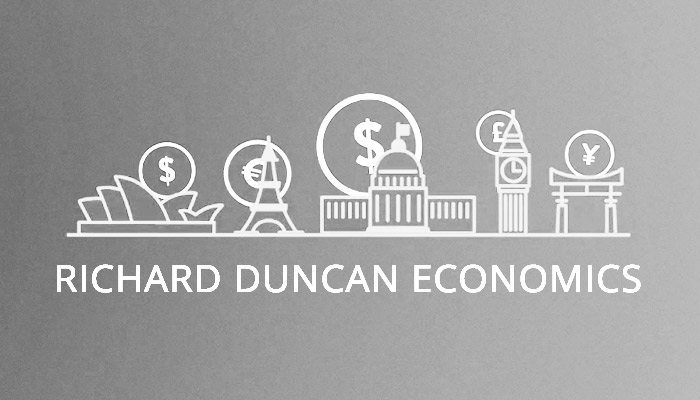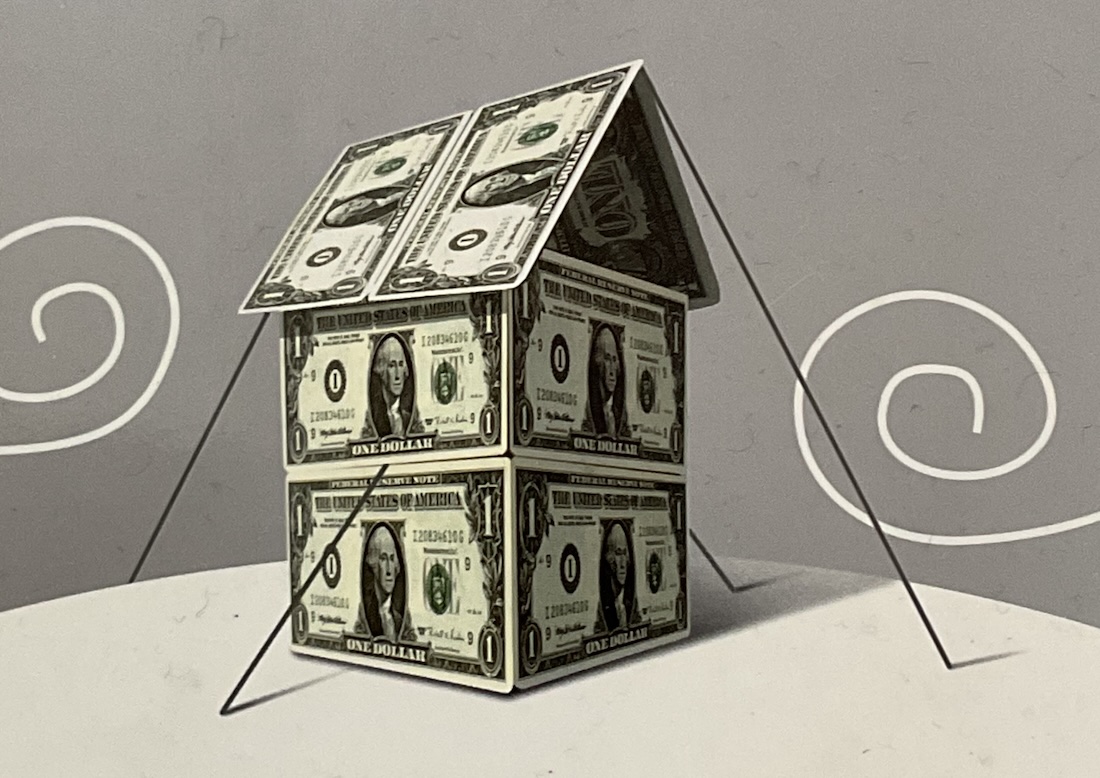ABANDONED PRINCIPLES

Posted April 4, 2011
There should be no confusion as to the origins of the global economic crisis that began in 2008. This crisis was set in motion in the 1960s, when policymakers in the United States abandoned the core principles of economic orthodoxy: balanced government budgets and sound money backed by gold.
Large budget deficits and the possibility of financing them with paper money fundamentally changed the way the economy functioned and brought about a worldwide transformation that, over time, has deindustrialized the United States and left it heavily in debt. Paper money revolutionized all economic relationships by making credit abundant instead of scarce. In a complete break with the past, the government was no longer constrained in its ability to spend, and international trade was no longer required to balance. Economists, however, remained oblivious to this corruption of capitalism, and economic theory was left entirely unrevised.
Most damagingly, economists and policymakers continued to believe that “free trade” would continue to produce the same benefits under a paper money regime as it had under the gold standard. They altogether failed to notice as free trade evolved into something entirely different, debt-financed trade. Moreover, they failed to grasp that debt-financed trade did not bring about the same permanent expansion of well-being as free trade, but instead permitted the development of extraordinary, debt-financed global imbalances that have thrown the world into a new depression now they have begun to come unwound.
The economic crisis confronting the United States—and, therefore, the world—is not cyclical. It is structural. The US economy is simply no longer viable as it is currently structured. The hard truth is that the United States produces very little that the rest of the world cannot buy much more cheaply from developing countries, where wage rates are 90% lower. The forces of globalization are hollowing out US industry and leaving the country incapable of producing as much as it consumes. These trends will only accelerate in the years ahead so long as current policies continue and current misconceptions about the benefits of debt-financed trade under a paper money regime persist.
A multi-trillion-dollar policy response in the United States and around the world has halted the downward spiral in economic output and asset prices—at least for the moment. It has also demonstrated that we really are all Keynesians now. Keynesian stimulus is not enough, however. Government spending is propping up the economy without correcting—or even targeting—the structural flaws that caused the crisis.
Keynes was right to advocate government spending to stimulate the economy during a depression. However, as his advice was not put into practice during his lifetime, he left us no exit strategy, no theory of how to eventually wean the economy off government life support. Therefore, it is now necessary to take Keynesian analysis a step further. Stimulus is not sufficient; a structural overhaul is required.
Japan’s twenty-year Great Recession offers insights into how this might be done. The expansion of government debt in Japan to more than 200 per cent of GDP has demonstrated just how great a government’s capacity to borrow actually is. It is not enough for the government to borrow just enough to support 1-2 per cent GDP growth year after year. Japan’s experience shows the government of a large industrialized country has enough debt capacity to borrow on a large enough scale not merely to support the economy with a steady drip of stimulus, but enough to completely restructure the economy so as to restore its viability. Japan did not do that, but the United States could and must.
It will require only a few more years of double-digit unemployment before a grassroots protectionist backlash sets in and Americans vote for high trade barriers. Protectionism would deal a great blow to global prosperity, but it is inevitable unless the United States completely reformulates its economic policy. Fortunately, a five- to ten-year window of opportunity exists for the US government to get to grips with the nature of this crisis and implement the radically different policies needed to permanently resolve it.
The United States economy must be fundamentally restructured if the country is to avoid moving toward terminal decline. New advanced industries must be developed to enable the country to produce products the rest of the world needs and can’t buy anywhere else at any price. This will require the government to invest in 21st-century industries on a scale great enough to give the United States an unassailable lead in the technologies of the future.
It is tragic that a series of terrible policy mistakes has led to this situation where the United States must now rely on the government to restructure the economy. However, America’s economic degeneration began long ago, when Presidents Johnson and Nixon broke the link between dollars and gold. Regrettably, only the US government has sufficient financial and organizational capacity to carry out the economic overhaul necessary to restore the nation to the path of sustainable prosperity. The private sector in the United States did not win World War II. The government took the reins of the economy during that war and steered it to victory. This national emergency will also require a government-directed solution.


I agree that we have abandoned our principles. But the main principle I see us having abandoned long ago is the concept that government’s only job is to protect our life, liberty and property. Sadly, our military personnel’s lives are put at risk through unnecessary wars, and our employers and workers, once free, are now shackled to the vast government machine that siphons our property through excessive taxation and turns it over to the elite, the perpetually lazy and the allegedly ‘at-risk’ via a myriad of government programs that ultimately turn many into permanent wards of the state. We even steal from our younger workers, a relatively poor demographic group, and turn their assets over to the richest demographic in the country via programs such as Social Security and Medicare. Yet the redistribution of these assets via thinly-veiled Ponzi schemes is lovingly viewed by liberals as ‘compassionate’. How can any group who created such an illogical mess be expected to unwind decades of pet programs and partisan policies that now cripple our country and threaten our future?
Clearly, this country’s economy has failed and is currently on government-sponsored life-support. It cannot go on forever, but our government will not save us. At some point the dollar will collapse, our bonds will be worthless, stock markets will crater, banks will fail, welfare checks will bounce, and food will be expensive. But life will go on and the ‘creative destruction’ that occurs, though temporarily painful, will remake the economic landscape. People will once again grow some of their own food, merchants will accept silver coins and/or barter, entrepreneurs will work to solve our energy issues, and most will reject big-government, big-business, and big-labor interference when they see the result of a truly free-market system. Libertarian-minded states will blossom and welfare-minded states will fail miserably. So don’t worry about it, just prepare.
I really appreciated this article and I also really agree with the response from Alan (above). Thanks to both.